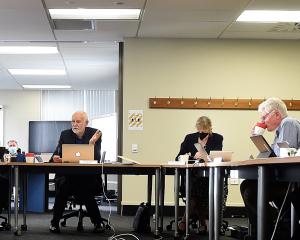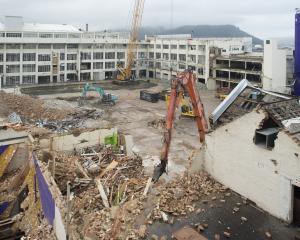Board adviser Chris Picard said board members from outside Christchurch were not in the city at the time of the February 22 earthquake, with most of them "en route". It was not expected that delaying the meeting would set back progress towards establishing the new service.
Providing what support it could to colleagues in Canterbury had to be the focus at this stage, Ms Picard said.
The board, chaired by Melbourne neurosurgeon Prof Andrew Kaye, first met in January after its establishment following the report of the expert panel on the future configuration of neurosurgery services in the South. Ms Picard said the board's next meeting would be later this month in Wellington.
Members of the expert panel, Anne Kolbe, Glenn McCulloch and David Russell, narrowly escaped the September 4 earthquake when they were gathering material for their report last year. They had met Canterbury District Health Board representatives the day before that earthquake, flying out on the evening before it struck.
In its closed session last week, the Southern District Health Board discussed buying a neurosurgery navigation system.
The board was criticised in the expert panel's report for not having this equipment and hiring it on a case-by-case basis, but the board said it had been reluctant to buy the equipment when the future of the service was unknown.
The report said the image-guided equipment was fundamental for a functioning neurosurgical service and would be needed in order to attract surgeons.
Neurosurgery in Dunedin continues to be provided by locums, although the long-term plan is for three neurosurgeons to reside in the city, two of them with academic responsibilities.
After the report came out in November, the board advised that it had spent almost $100,000 on hiring the equipment last financial year. It expected then that buying the machine would cost about $300,000.
Board finance and funding general manager Robert Mackway-Jones said last week that the board was spending about $15,000 a month leasing the machine, although it expected to rebate some of this through the purchase.
He could not be more specific than that because the procurement process had not been finalised.
Advertisement












